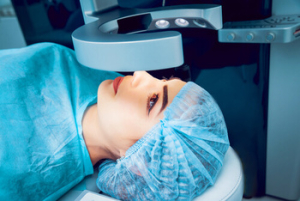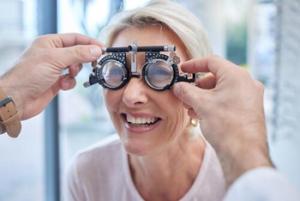Cataract Surgery Success Rate: What You Need To Know
Cataract surgery is a known eye procedure that helps millions see more clearly. It can improve eye health and quality of life for those with blurry vision or who have trouble seeing bright lights. Thanks to modern technology, many patients’ cataract surgery success rate is very high, with comprehensive cataract care offered across Melbourne
helping locals enjoy sharper, clearer vision.
We’ll explore cataract surgery’s success rate, what happens before and after surgery, and possible risks.
Understanding Cataracts And Their Impact On Vision
Cataracts are an eye condition that can make your vision blurry and less clear over time. You might find reading, driving, or seeing well in bright lights harder. You may also have trouble recognising faces. If cataracts get worse, they can affect your eye health and daily life.
How Do Cataracts Form?
Your eye has a natural lens that helps you see clearly. A cataract happens when this lens becomes cloudy. This stops light from properly reaching the back of your eye, making your vision blurry or dim.
There are different reasons why cataracts can form. Ageing is the most common cause, but other factors can also play a role, such as:
- Genetics: Some people are born with a higher chance of getting cataracts.
- Diabetes: High blood sugar levels can impact the natural lens over time.
- Smoking: Smoking can harm the eyes and increase the risk of cataracts.
- UV Exposure: Being in the sun without eye protection can make cataracts form faster.
- Certain Medications: Some medicines, like long-term steroid use, may increase the risk of cataracts.
Cataracts usually develop gradually, so you may not notice them at first. But over time, they can make it harder to see clearly.
 What Is Cataract Surgery?
What Is Cataract Surgery?
Cataract surgery is a procedure where the doctor removes the blurry natural lens and replaces it with a new lens called an intraocular lens (IOL). This artificial lens helps focus light properly so you can see better.
Cataract surgery is a routine procedure and usually takes place as a day surgery, meaning you can go home the same day. The surgical procedure is quick, and you should recover within a few weeks.
Is Cataract Surgery Safe?
Cataract surgery is a precise eye procedure. Doctors have been performing this routine procedure for many years, and modern techniques make it even more accurate. If you have blurry vision or trouble seeing clearly, this surgical procedure may help improve your eye health.
Cataract Surgery Success Rate
Cataract surgery has a very high success rate. Around 95% of people who have cataract surgery achieve clear vision. Doctors plan each surgical procedure to lower risks and make the experience comfortable.
While there is a risk of complications, you should recover well and enjoy clearer vision after surgery.
What To Expect Before, During, And After Cataract Surgery
Cataract surgery helps improve blurry vision and restore clear eyesight. If you are preparing for surgery, it’s helpful to know what to expect. Understanding each step can help you feel more confident about the process.
Before Surgery
Before your surgery, your eye doctor will thoroughly examine your eye health and decide which intraocular lens (IOL) is best for you. This artificial lens replaces your cloudy natural lens, helping you see more clearly.
Your doctor may ask you to:
- Stop wearing contact lenses before surgery so your eyes can adjust.
- Use specific eye drops to prepare your eyes for the procedure.
- Follow specific post-operative care instructions to help with healing after surgery.
You may also need someone to drive you home right after the surgery, as your vision may be blurry at first.
Your eye doctor will explain everything and answer any questions you have. Since this is a routine procedure, you can feel assured that the process is well-practised.
During The Procedure
Cataract surgery is quick and usually takes only 15–20 minutes for routine cases.
Here’s what happens during this outpatient procedure:
- Your eye will be numbed with topical anaesthesia, so you won’t feel much pain.
- A tiny incision is made in your eye to remove the cloudy natural lens.
- The cloudy lens is broken down into small pieces using ultrasound energy and then removed.
- A new artificial lens (IOL) is placed to help you see clearly.
The tiny incision used in the surgery is so small that it usually heals on its own without stitches. Because the procedure is gentle and precise, you should feel minimal discomfort.
After Surgery
Your eyes will start to heal quickly, but it’s normal to have some mild discomfort, blurred vision, or light sensitivity for the first few days. Your vision will gradually get better as your eyes adjust to the new lens.
To help with recovery, your eye doctor will:
- Prescribe eye drops to lower the chances of infection and reduce swelling.
- Ask you to avoid rubbing your eyes, bending over, or lifting heavily.
- Suggest sunglasses to protect your eyes from bright lights.
- Advise you to rest and stay away from strenuous activities for a short time.
You will have follow-up appointments with your eye doctor to make sure your eyes are healing well. Over the next few weeks, your vision should become sharper and clearer, allowing you to enjoy daily activities more easily.
Cataract surgery is a very precise treatment for blurry vision caused by cataracts. With proper care, you should experience a significant improvement in your sight and enjoy a better quality of life.
Potential Risks And Complications
Like any surgery, cataract surgery can have its own risks. You should recover without issues, but it’s important to know about possible complications so that you can seek help if needed.
Serious complications are not that common, but some of them include:
Posterior Capsule Opacification (PCO)
This is one of the most common complications after cataract surgery. Sometimes, the posterior capsule, which holds the artificial lens, becomes cloudy over time. This can cause:
- Blurry vision
- Light sensitivity
- Difficulty seeing clearly
PCO is addressed with a laser procedure called YAG laser capsulotomy, which restores clear vision within minutes.
Posterior Capsular Rupture
This is a complication where the thin membrane behind the artificial lens tears during surgery. If this happens, your eye doctor may need to:
- Use advanced techniques to place the intraocular lens (IOL) securely.
- Perform extra surgery to fix the issue if needed.
Most cases of posterior capsular rupture are managed, and vision is not permanently affected.
Corneal Oedema And Macular Oedema
Swelling in the eye can sometimes occur after surgery. There are two main types:
- Corneal Oedema: Swelling in the cornea, the clear front part of the eye.
- Macular Oedema: Swelling in the macula, the part of the eye responsible for sharp vision.
Symptoms may include:
- Visual impairment
- Light sensitivity
- Mild discomfort
These conditions usually improve with eye drops or other medications. As the swelling reduces, vision usually returns to normal.
Retinal Detachment
This is a complication where the retina pulls away from the back of the eye. It requires urgent medical attention. Signs of retinal detachment include:
- Sudden flashes of light
- A shadow or curtain over part of your vision
- A sudden increase in floaters (small dark spots moving in your vision)
If you notice these symptoms, see your eye doctor immediately. Prompt treatment can help prevent permanent sight loss.
How To Reduce Risks
While the risks of cataract surgery are very low, you can take steps to support healing and protect your vision:
- Follow all post-operative care instructions from your eye doctor.
- Use prescribed eye drops to prevent infection and reduce swelling.
- Avoid rubbing your eyes or doing strenuous activities for a few weeks.
- Attend all follow-up appointments to ensure your eyes are healing properly.
The Benefits Of Cataract Surgery
Cataract surgery can make a noticeable difference in your vision and daily life. After the procedure, you may notice many positive changes, including:
- Clearer vision than before
- Better sight in bright lights and at night
- More independence in daily activities
- Less need for contact lenses or glasses
Cataract surgery helps you enjoy life more. Whether it’s reading, driving, or seeing loved ones clearly, better vision can improve your quality of life.
Frequently Asked Questions
Will I need glasses after cataract surgery?
You might still need glasses for some tasks. This depends on the type of intraocular lens (IOL) you get. Your eye doctor will help you pick the right one for your needs.
What are the types of intraocular lenses?
Different types of IOLs include:
- Monofocal Lenses: Help you see clearly at one distance
- Multifocal Lenses: Help you see both near and far
- Accommodative Lenses: Adjust focus for different distances, like your natural lens
Your doctor will help you pick the most suitable IOL for your vision.
How soon can I drive after cataract surgery?
You should wait until your eye doctor says it’s okay. This is usually a few days after surgery, but it depends on how well your vision improves.
What happens if cataracts are left untreated?
Cataracts can get worse over time, causing blurry vision, double vision, and trouble seeing bright lights. If left untreated, vision may decline, leading to severe vision problems.
Will both eyes be treated at the same time?
You will have one eye treated at a time. If both eyes need surgery, the second eye is usually treated around a month later.
 Should I wear an eye patch after cataract surgery?
Should I wear an eye patch after cataract surgery?
You might need to wear a protective shield over your eye after surgery, especially while sleeping. This helps protect the eye while it heals.
Can I wear makeup after cataract surgery?
It’s best to avoid eye makeup for at least a week. This helps lower the risk of infection while your eye heals.
Conclusion
Cataract surgery is a common procedure that helps you see clearly again. It has a very high success rate and can greatly improve your quality of life. The risks can be manageable, and you should experience better vision after surgery.
If you have cloudy vision, trouble with bright lights, or worsening eyesight, it might be time to see an eye doctor. They can check your eye health and help you decide if cataract surgery suits you.
If cloudy vision is making daily tasks harder, cataract surgery could help you see clearly again. Our friendly eye doctors are here in Melbourne to answer your questions and guide you through the process.
Call Mornington Peninsula Eye Clinic today at (03) 9070 3580 to book an appointment. Let’s help you enjoy brighter, clearer vision!
Note: Any surgical or invasive procedure carries risks. Before proceeding, you should seek a second opinion from an appropriately qualified health practitioner.
Sources
Ames H 2023. What to Know About Cataracts and Vision Loss. Medical News Today. Available at: https://www.medicalnewstoday.com/articles/can-cataracts-cause-blindness [Accessed February 10, 2025]
Bedinghaus T 2022. Cataract Surgery: Overview. Verywell Health. Available at: https://www.verywellhealth.com/cataract-surgery-3421690 [Accessed February 10, 2025]
Healthdirect Australia 2024. Cataracts. Healthdirect. Available at: https://www.healthdirect.gov.au/cataracts [Accessed February 10, 2025]
Hersh E 2023. Can Cataracts Come Back After Surgery? Healthline. Available at: https://www.healthline.com/health/can-cataracts-come-back [Accessed February 10, 2025]
Moore W 2024. Complications of Cataract Surgery. WebMD. Available at: https://www.webmd.com/eye-health/cataracts/complications-cataract-surgery [Accessed February 10, 2025]
Moshirfar M, Milner D & Patel B C. 2023. Cataract Surgery. StatPearls [Internet]. Available at: https://www.ncbi.nlm.nih.gov/books/NBK559253/
Mukamal R 2022. 3 Surprising Benefits of Cataract Surgery. American Academy of Ophthalmology. Available at: https://www.aao.org/eye-health/tips-prevention/surprising-benefit-cataract-surgery-treatment [Accessed February 10, 2025]


 What Is Cataract Surgery?
What Is Cataract Surgery? Should I wear an eye patch after cataract surgery?
Should I wear an eye patch after cataract surgery?



Leave a Reply
Want to join the discussion?Feel free to contribute!